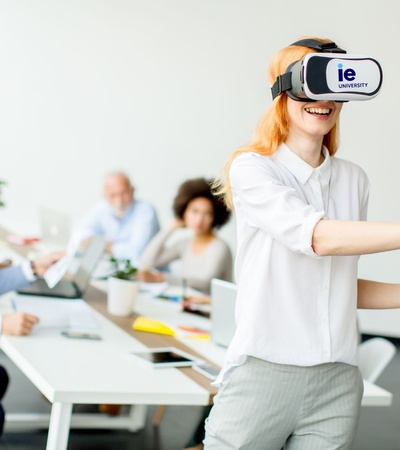Learning Methodologies for Impact
Learning Methodologies for Impact
Our methodologies go beyond traditional education— empowering continuous growth through flexible, dynamic, and personalized learning. They represent a transformative mindset rooted in continuous upskilling and lifelong learning with real-world impact.
Rather than relying on a single method or platform, our approach blends innovation, interaction, and purpose.
TRANSFORMATIVE LEARNING TECHNIQUES
TRANSFORMATIVE LEARNING TECHNIQUES
At IE Lifelong Learning, we combine innovative methodologies that maximize learning effectiveness. Our programs have been designed to integrate diverse formats and experiences, each contributing uniquely to enriching the participant’s learning journey.
Beyond the Program: Comprehensive Experience
Beyond the Program: Comprehensive Experience
Our commitment to participants extends beyond the classroom. We provide a holistic learning experience enriched with activities and resources that enhance personal and professional growth. Our approach includes:
Networking
Build valuable connections with peers, industry experts, and faculty.
Personal Development & Leadership
Strengthen your skills and unlock your full potential.
Engagement & Commitment
Foster an immersive and dedicated learning journey.
Community
Be part of a dynamic, global network of professionals.

Excellence in Faculty
Excellence in Faculty
Our faculty members are the cornerstone of our programs, blending academic rigor with practical expertise and technological innovation. Selected through a competence-based model, they not only possess exceptional knowledge and experience in their respective fields but also demonstrate the key skills necessary to foster an engaging and impactful learning environment. They provide in-depth, up-to-date content across various disciplines, offer constructive and timely feedback to support continuous improvement, and tailor their approach to meet the needs of each program and group. At IE Lifelong Learning, our faculty are not just educators; they are mentors and innovators, committed to preparing participants for future challenges.








